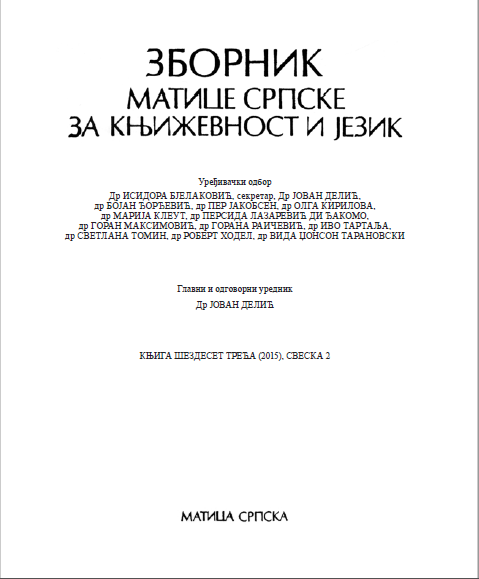ОРИЈЕНТАЛНА ТРАДИЦИЈА У РОМАНУ КОНАК ЋАМИЛА СИЈАРИЋА
ORIENTAL TRADITION IN CAMIL SIJARIC’S NOVEL KONAK
Author(s): Nadija RebronjaSubject(s): Cultural history, Bosnian Literature, Theory of Literature
Published by: Матица српска
Keywords: Ćamil Sijarić; Konak;
Summary/Abstract: In the novel Konak, Sijaric goes even deeper into history, this time by dealing with the period in which the weakened Ottoman Empire needs to leave the power to Prince Milos. Once again, the author reveals his fascination with the transitional and ambivalent, so that this transitional historical moment also plays a role in characterisation of characters. This marginality, the feeling of uncertainty and crisis, are typical of modern men. As a personification of that transitional historical moment, this story is told by Alija, a harem guardian, who is a eunuch, neither a man nor a woman, just like the weakened empire that has not completely gone but is lacking its previous significance. The author plays with non-defined gender identity of Alija, who is ‘neither a sword nor sheath’, defining him symbolically as a writer and poet who constantly keeps in touch with an imaginary Persian wiseman Ser-Ana. If the name Ser-Ana is interpreted, symbolically it could represent poetry itself, literature and books, in the same manner Alija defines it himself. Within constant touch with the poetic and literary, Alija tries to find a way back to his beginnings, his homeland, while the homeland is a symbolical connection to the traditional.
Journal: Зборник Матице српске за књижевност и језик
- Issue Year: 63/2015
- Issue No: 2
- Page Range: 445-465
- Page Count: 21
- Language: Serbian

